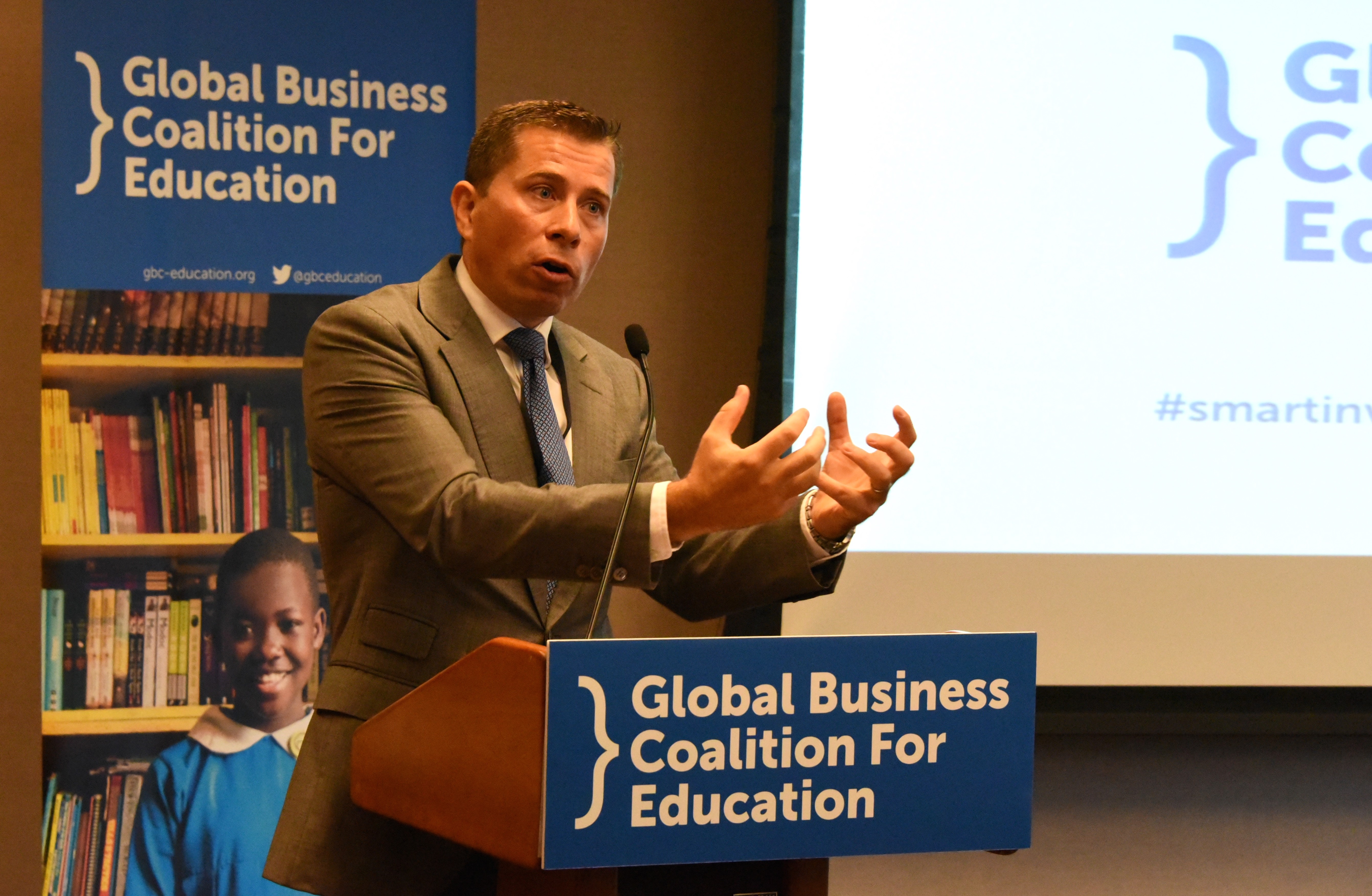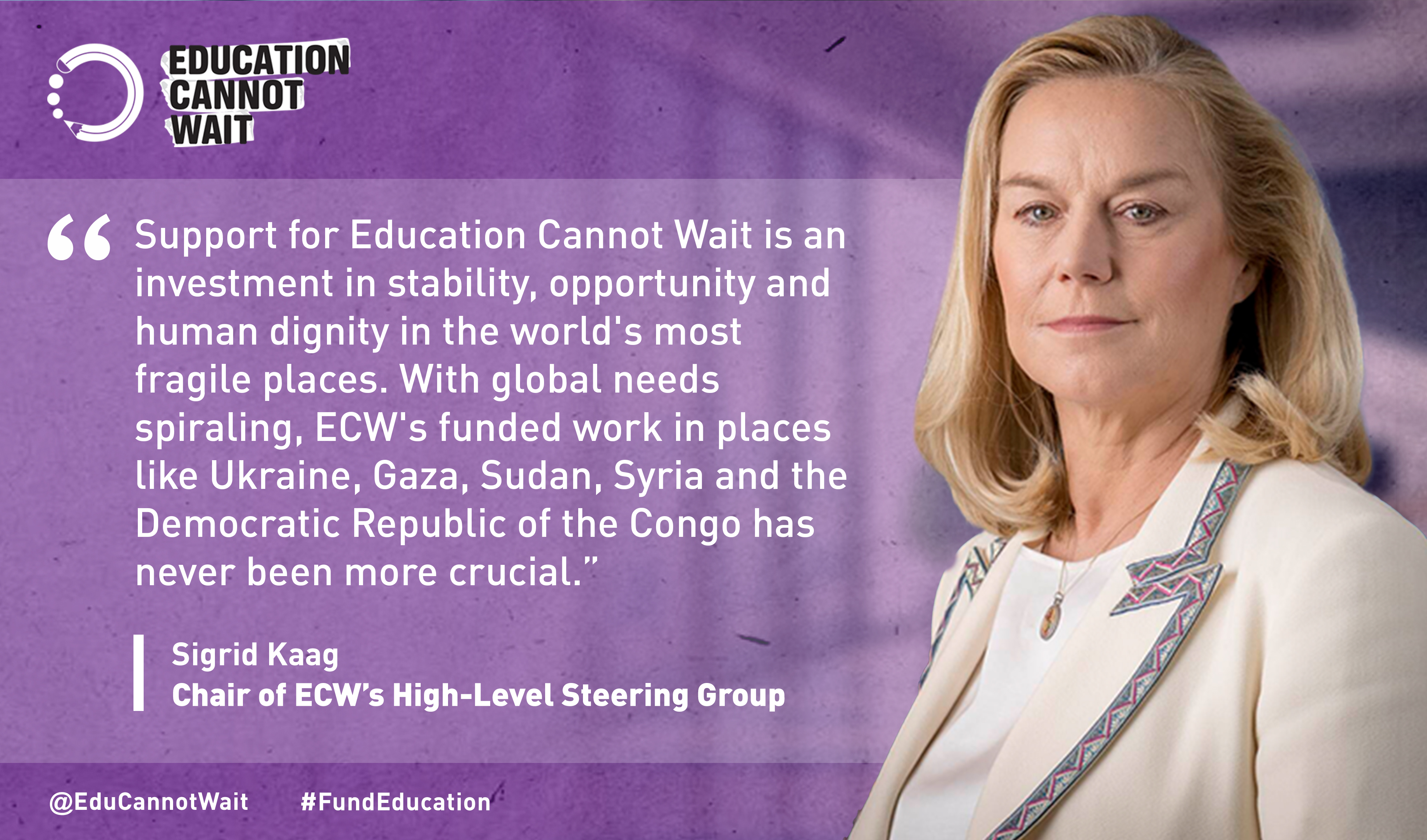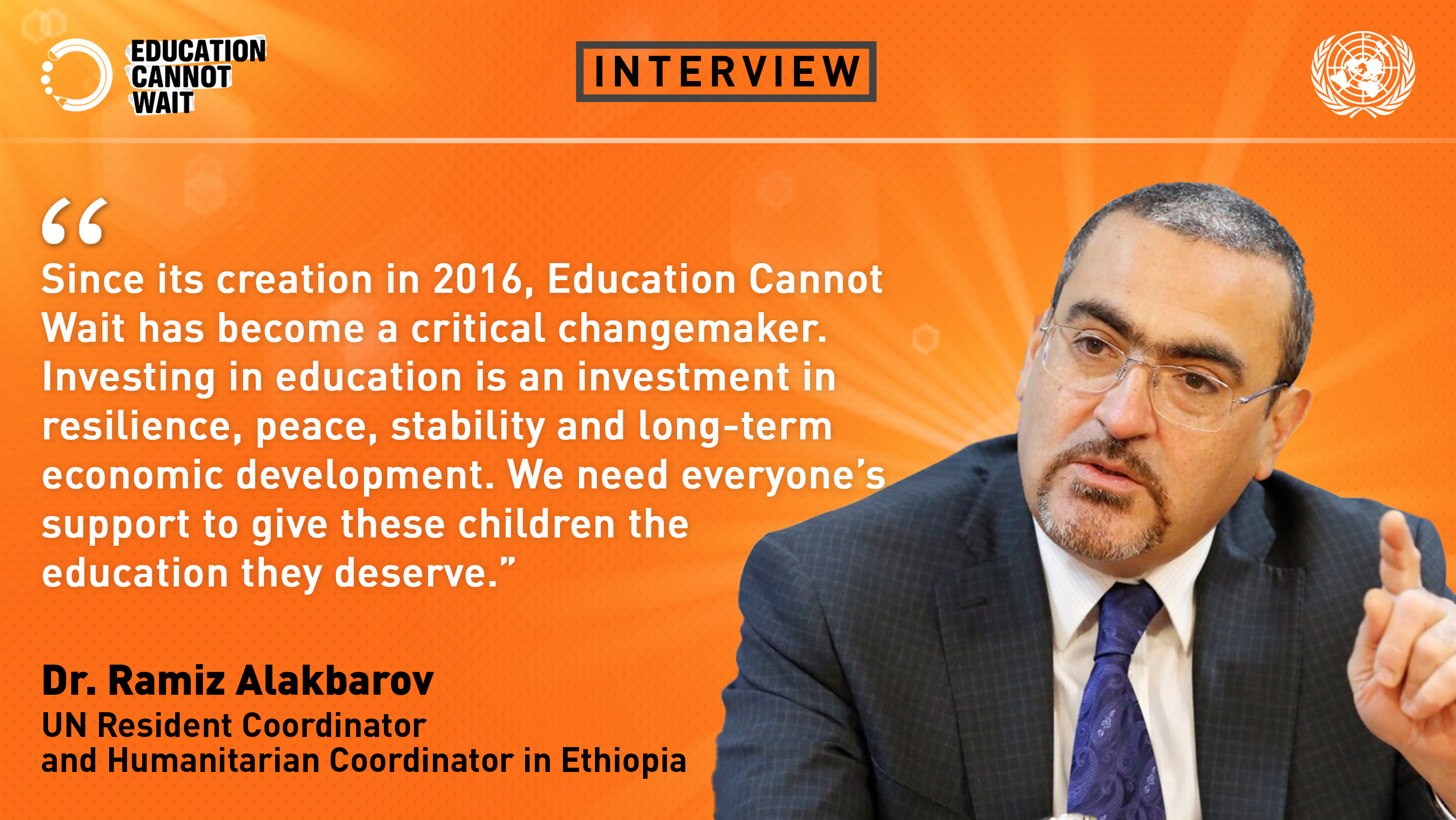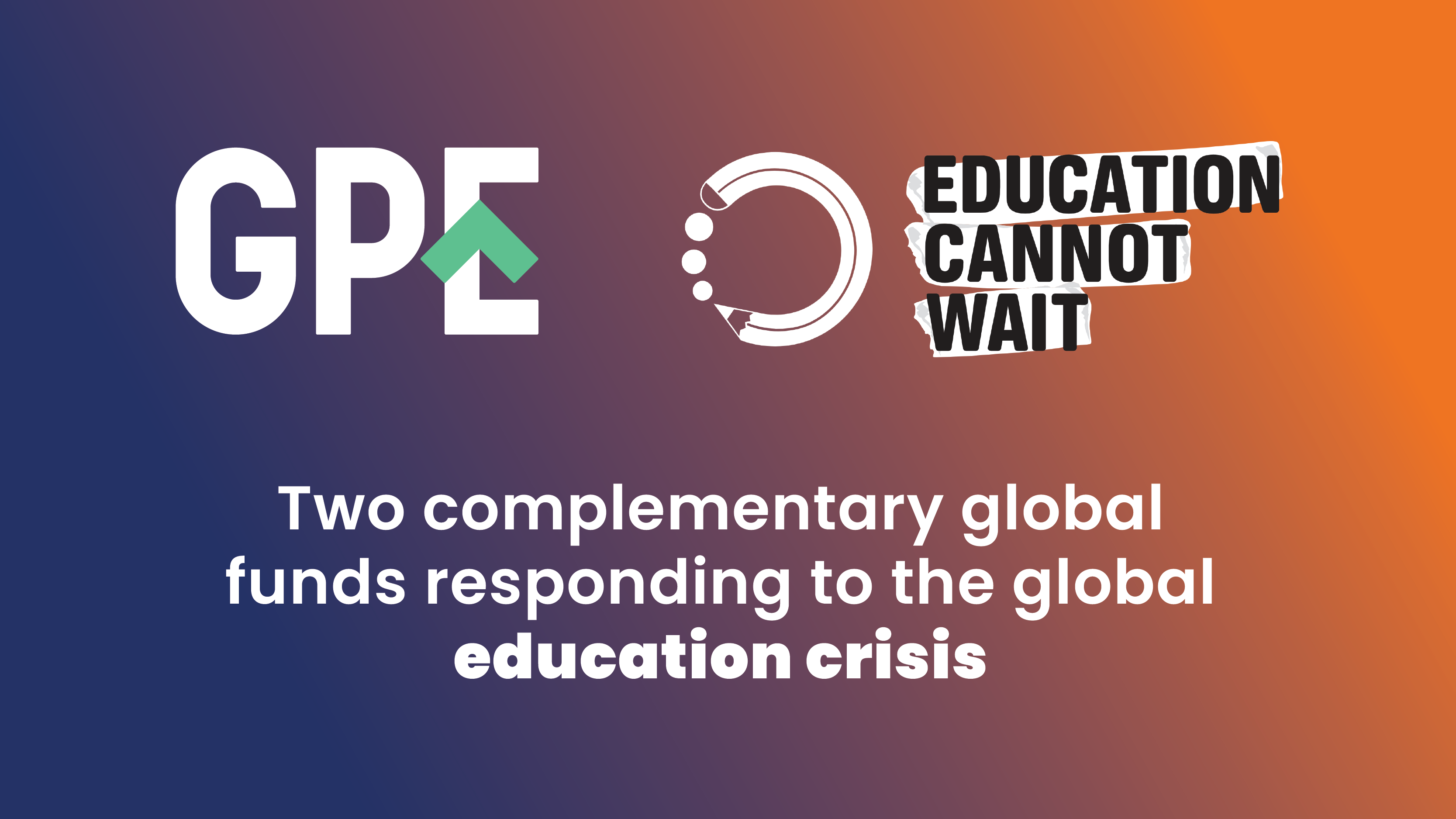Harnessing the Technology & Compassion of the Private Sector for Education

Mr. Tom Fletcher, Director of Global Strategy at Global Business Coalition for Education, speaks to the fund about the role of the private sector in transforming education in emergencies.
For many of us, when a disaster or crisis hits, we feel powerless. We watch events unfold with horror and sadness, but feel impotent to help beyond a donation to an NGO or a call for our government to help. For many of us, much of our compassion doesn’t find a practical outlet.
Some help does get through. Immediate humanitarian supplies, like food and water, may be provided. But education is often seen as too complicated, less urgent, and a luxury and is therefore rarely prioritised.
As a result, millions of children in emergencies are denied education every year.
But what if there was a different way to respond? Ingenious humans are already using technology to allow people to find a date, contact people on the other side of the world, and access content.
What if we took all that technology, and combined it with all that compassion? What if we were ready next time a crisis hits? And what if business led the way? Not with finance, but with practical help — supporting the education effort in the best ways it can.
The Global Business Coalition for Education is supporting the efforts of Education Cannot Wait by harnessing the compassion of the private sector and combining it with modern technology to transform education in emergencies.
GBC-Education’s Rapid Education Action (REACT) database creates that potential for the first time. Already, over 45 companies have pledged their time, creativity, and practical ideas to help meet practical needs on the ground.
A REACT partnership between NaTakkalam and Re:coded is using technology to generate sustainable incomes through the delivery of online skills training for the 21st century job market. NaTakkalam is pairing displaced Syrians with Arabic learners around the world over Skype. This provides Re:coded with resources to pay refugees in Iraq as they train to become world-class software developers, and links them to job opportunities.
And REACT partners are not the only members of the private sector already active in helping provide education in emergencies. Here are some examples of how business is already helping …
- Communication providers such as AT&T, Turkcell, and T-Mobile are providing free access to their services, making it easier for communities hit by disaster to access educational content.
- Accenture and KPMG have schemes allowing employees paid time off to volunteer to help.
- Companies such as BMW have funded places at European universities for displaced students and faculty to continue their education.
- Tech companies are also engaged. HP has created digital classrooms in Lebanon for those fleeing Syria to access the best possible education. Google deployed People Finder to help families locate loved ones. Microsoft has allowed people to use Skype to make free calls. Ericcson ran a project to reconnect refugees in Europe with their families. ITWORX Education is offering significant in-kind support — providing tablets and access to digital learning platforms for those hit by crisis. Endless has donated hundreds of computers to refugees in Jordan.
- Other companies are providing the physical space in which to study. NRS International has pledged tents and shelter for schools. In Jordan, engineering companies are working with USAID and the Jordanian government to build new schools. Coalitions of companies, such as Techfugees, the UK/Lebanon Tech Hub, and Alt City are bringing ingenuity and time to the challenge.
- Pupils and their families also need access to finance. Money transfer companies such as Western Union have made it easier to send financial support to those who need it to continue their education. And MasterCard has distributed prepaid debit cards to thousands of refugees.
- Facebook is providing wifi connectivity to locations where refugees are based while Uber is providing free delivery of vital items, including books, for child refugees.
But there is so much more we can do – and REACT aims to make business engagement greater than the sum of its parts through better coordination and real-time matching of business assets with actual needs in the sector.
To create systemic change, we need to move from one-off projects to larger-scale, systemic approaches. Our partners in the field are now sending REACT their specific requests for help. We plan to work with ECW to identify needs in initial investment countries of Yemen, Chad, Syria and Ethiopia. We also want REACT to be involved at the onset of an emergency, ready to deliver logistics networks and other essential supports. There is also a role for the business community in developing global public goods that can enhance the overall response of the international community.
We are now asking Education Cannot Wait, UN agencies, and others on the frontline of the education effort to tell us what help they need. This week I’ve spoken to extraordinary organisations working in Northern Kenya, Eastern Lebanon and Somalia, looking for support to deliver education to the most vulnerable children, in complex environments. Only with real requests can we find out if this new system will work effectively.
Business can now be among the first on the frontline of the crisis response. And if business can do it, maybe the next phase is to make it easier for individual citizens to do more to help. We are then on the way to a 21st century response to these challenges. And with an education, the next Gates, Einstein or Curie currently caught up in crisis can go on to achieve their potential.
That is surely worth imagining. Please get us your requests.



